|
 |
Events
- From 12 to 14 November, the Career
Days for doctoral researchers and postdocs
will take place at the University of Jena. You will
get an insight into career paths in science and
learn about strategies to find a job in business and
society. We cordially invite you to our networking
event on the evening of 14 November (Picture:
Adobestock).
- The Thuringia Competence Network for Research Data
Management (TKFDM) organises a series of German Coffee
Lectures on the significance of the new
EU digital strategy for the handling of research
data. The next online event is on 16 October on the
topic of ‘EU
legal acts and digital research funding’. The
TKFDM is also organises the Data Horror Week
from 21 to 25 October. New Research Data ScaryTales
will be published
on social media and on
the TKFDM-website to illustrate the drastic
consequences of careless handling of research data.
- On 14 November, the event ‘Women
in Focus – Your Career in Science,
Business and Start-ups’ will take place
in the Normannenhaus (Forstweg 12). In keynote
speeches, panel discussions and workshops, female
role models from academia and industry will talk
about their career paths. The event encourages
participants to think about their own professional
future and offers a platform to network with other
participants.
- The doctoral council is organising (in cooperation
with the GEW) the workshop
‘First Generation Doctorate’ on 25 November.
It will address the role of social background in the
German higher education system and how to deal with
the expectations of one's own (non-academic) family.
The aim of the workshop is to raise awareness of
one's own strengths and to discuss privileges. The
workshop will be in German. You can also find a
website with general information about ‘First
Generation PhD’ here.
- From 27 to 29 November the Mental Health
Awareness Days will take place for the second
time. During these days, you can participate in
short online workshops on topics such as
overthinking, stress reduction, dealing with
conflicts and boundaries, chronic illness and
mindfulness. The programme can soon be found on
this website.
|
|
|
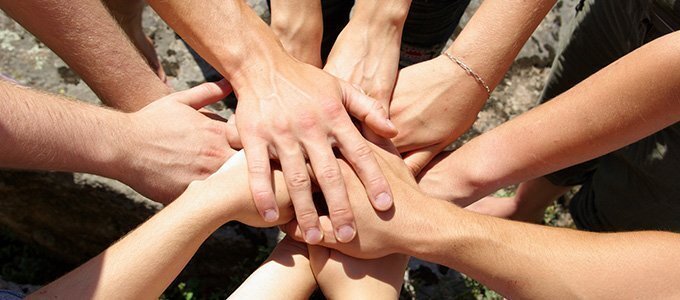 |
Get
involved
- Lecturers
with teaching assignments (German: Lehrbeauftragte)
are being used more and more to secure university
teaching. However, these assignments are not made in
the form of an employment contract with social
security contributions. At the University of Jena,
there is now a group of lecturers who
regularly discuss this (often precarious) situation.
The next meeting will take place on 15 October 2024
at 4 pm via Zoom
(Passcode: 357381). All lecturers are cordially
invited.
- A kick-off event for the foundation of a Germany-wide
postdoc network took place on 17 September.
The network
aims to represent the interests of postdocs in the
political arena, provide information on career paths
and also serve to promote networking and community
building. In this way, the network closes the
representation gap between the newly established
nation-wide council for doctoral
researchers and the professors'
interest group.
- Recording of working hours? Supervision Agreement?
Carrer Point? – You are confused with all the
Terminology at the university? The DR.FSU explains
the jungle of terms in its series "Doctorate
from A to Z". Follow the doctoral Council on Instagram.
- The Jena
Alliance supports self-organized
networking events of doctoral candidates with
up to 1,000 Euro per event day. The funding can be
used to reimburse costs such as speaker fees, room
rental, travel expenses, public relations materials
or catering. Eligible to the funding
programme are doctoral researchers within the
Jena Alliance and its affiliated graduate schools.
Applications are possible all year round.
|
|
|
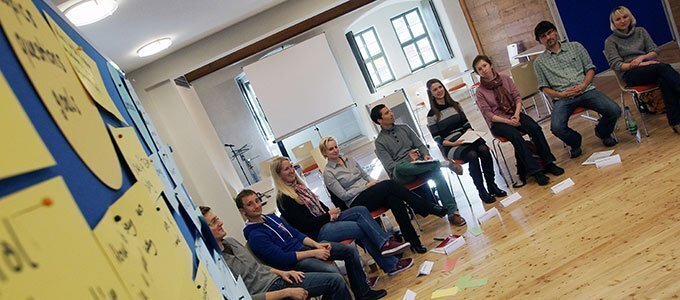 |
Qualification
offers
There are still vacancies in the following online and
on-site workshops:
- Graduate Academy:
- Lehre Lernen:
- China Competence Platform (in German):
- Competence Center Digital Research (zedif):
|
|
|
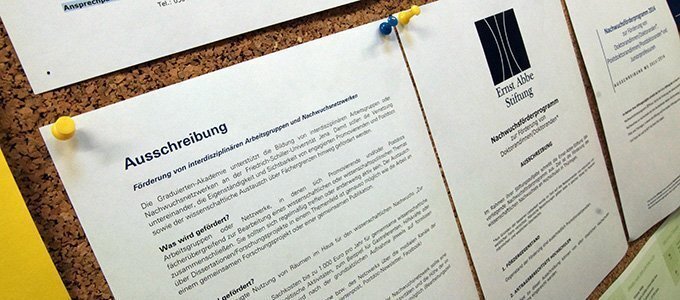 |
Announcements
- For
the first time, the "Junge Akademie" is announcing
the prize
for the best research environment. Teams
can apply until 18 November. A total of ten teams
can win and receive prize money of 10,000 euros
each! The prize money can only be used for
team-building activities, e.g. retreats, coaching or
further training. The prize is sponsored by the
Volkswagen Foundation.
- The LIBERTY profile line is once again inviting
applications for the Connect
Fund. Applications can be made for up to
20,000 euros for projects in the humanities and
social sciences, which will later result in a
third-party funding application. This time, only
doctoral researchers and postdocs are eligible to
apply. Applications can be submitted until 15
November.
- The Fulbright Commission is funding research
stays in the United States. Eligible are
doctoral candidates at the beginning of their
doctorate who want to do a research stay in the
United States from 4 up to 6 months. Application
deadline for these scholarships is 1 November 2024.
|
|
|
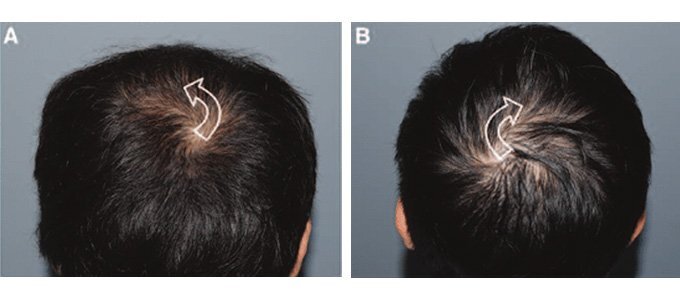 |
This
may be of interest to you
- A scandal hit the Federal Ministry of
Education and Research (BMBF) in summer: After
a pro-Palestinian demonstration at the Free
University of Berlin was dispersed,
lecturers wrote an open
letter defending the right to demonstrate
freely. Federal Education Minister Stark-Watzinger harshly
criticised these lecturers in public. In
mid-June, it was revealed that the ministry was
investigating whether these lecturers had received
BMBF funding and whether this could be withdrawn. It
is unclear who initiated this investigation. A state
secretary who is said to have done it was dismissed.
The minister says she knew nothing about this. The
matter will probably not be investigated
further as neither the coalition nor the
opposition want to set up a parliamentary committee
of enquiry.
- There are several (German) podcasts that
explore the academic system and academic career paths:
The podcast ‘NachwuchsFragen’
from Leibniz University Hannover deals with all
questions relating to academic careers in Germany.
Professors from Berlin universities speak about
their individual career paths in the podcast ‘Spot
ON - Wege zur Professur’. The subject-specific
podcast series ‘Vergangenheitsformen’
deals with current topics in the humanities. There
are also many subject-specific
podcasts at the University of Jena.
- In the German academic system, there is a need for
permanent academic positions next to
professorships. In cooperation with the German
Rectors' Conference, the Junge Akademie has
now developed a proposal for what these
positions could look like. Three new job categories
are recommended: Lecturer, Researcher and Academic
Manager. None of these should be assigned to a
professorship. The only problem: how should these
positions be financed? The Federal Ministry of
Education and Research (BMBF) was actually supposed
to develop a concept for a temporary programme to
establish more of these positions at German
universities – like the tenure-track programme.
Instead of a concept, however, at the end of
September the BMBF only presented its wish
to discuss the issue with the federal states –
but without providing any financial resources for
more permanent positions.
- This year's IgNobel Prizes were awarded
in September. The IgNobel Prizes honour research
projects that use scientific methods to investigate
unusual questions. This year, the prize in medicine
went to a project that investigated whether the hair
whirls of infants (see picture)
in the northern hemisphere are more frequently
rotated clockwise than in the southern hemisphere
(they are more frequently). The prize for Demography
went to a study that found that the (allegedly)
oldest people of the world live most frequently in
areas with poor and incomplete birth records.
|
|
|
 |
Short
query: Feedback from your supervisor
In the last newsletter, we asked whether you had already
experienced forms of hostility towards scientists:
well over half of the respondents (61%) said that they
had. The most common were patronising remarks (53%),
doubts about competence (26%) and inappropriate
reactions in public discussions (13%). If you experience
serious anti-science behaviour, you can contact us
directly or use the newly established Scicomm
hotline.
When you do a doctorate, you are depending on feedback
from your supervisor. That's why this time we want
to know how long it usually takes to receive feedback
for your own texts (e.g. dissertation chapters,
publications). The survey will take about two minutes.
To our query
|
|
|
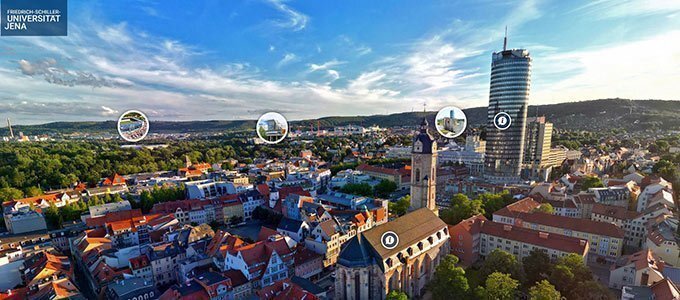 |
News
from University of Jena
- The Deutschlandticket
is now automatically included in the semester
fee. This allows you to use local bus and
train services throughout Germany. However, as of
this semester, the Thoska card is no longer valid as
proof of the ticket. Instead, the Deutschlandticket
must be applied for via this
portal and then downloaded in the Mein-Jena
app. A detailed explanation of the procedure can be
found here.
- The University of
Jena has published a (German) recommendation
on the use of artificial intelligence:
in it, the use of artificial intelligence is
recommended, for example, to further develop ideas
or support the writing process. However, it is not
recommended to take over complete texts or to use AI
in examinations (without informing the teacher). In
the future, a new portal is planned to provide all
university members with free and secure access to
ChatGPT 4. Further information can be found on this
(German) website.
- In July, the
university adopted guidelines
for the postdoc phase. These are
recommendations on how to improve the research
culture in the interests of postdocs. The guidelines
describe the individual stages of the postdoc phase
with their respective task profiles, clarify the
change in the relationship with supervisors
(increasing academic independence) and break down
the responsibilities for the success of the postdoc
phase according to different stakeholders (postdocs,
supervisors, university). The university had already
adopted guidelines
for the doctoral phase in 2021.
- Jena's beauty can
now also be marvelled at from above: The University
of Jena has created a new website where you can
enjoy a 360-degree
drone view of the city in bright
sunshine (see screenshot above).
New openings and ground-breakings
In spring, the new Leibniz
Centre for Photonics in Infection Research (LPI)
began its work +++ In summer, the new Helmholtz
Institute for Polymers in Energy Applications
(HIPOLE Jena) and the new Senckenberg
Institute for Plant Diversity were opened +++ In
addition, the ground-breaking ceremony was held for
the new German
Optical Museum and the new ‘Lab2fab’
start-up centre
|
|
|
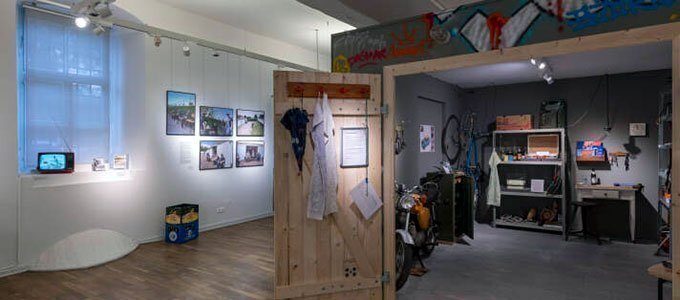 |
Latest
News from Thuringia
- The Thuringian state parliament was
newly elected on 1 September. The extreme
right AfD became the strongest party with almost 33
per cent. As all parties have ruled out a coalition
with this right-wing party, a coalition of Christian
Democrats, Social Democrats and the Sahra
Wagenknecht alliance is now being sought – a
so-called blackberry coalition (corresponding to the
colours of the parties). In order to continue to
rule out cooperation with the right-wing AfD, the
alliance ‘Uni gegen Rechts!’ has launched
a signature campaign: Over 700 employees of
Thuringian universities have already signed. It
remains unclear when the election of the Minister
President will take place.
- Since this summer, it is possible to do a
doctorate in research-intensive fields at universities
of applied sciences in Thuringia. The state
parliament amended
the Higher Education Act to this effect. Previously,
doctorates at a university of applied sciences were
only possible in cooperation with a university. The
idea behind it was that no independent academic
research took place at universities of applied
sciences. However, this has changed in recent years.
As a result, universities of applied sciences have
already been granted the right to award
doctorates in nine other federal states.
- The ‘Long
Night of Science’ takes place on 22
November. Over 120 research institutions and
companies will be taking part. There will be among
others a science
slam on sustainability and a German panel
discussion on hostility towards science.
Tickets are available at the Jena Tourist
Information Centre.
- In the former German Democratic Republic, there
were often large garage complexes between apartment
blocks. People met there, tinkered, and worked on
cars or mopeds. For the first time, this
multifaceted role is also being presented in a
museum: In the Erfurt exhibition ‘Garages,
Stories. Explorations of an everyday place’.
The museum has even recreated a real garage (see
picture).
|
|
|